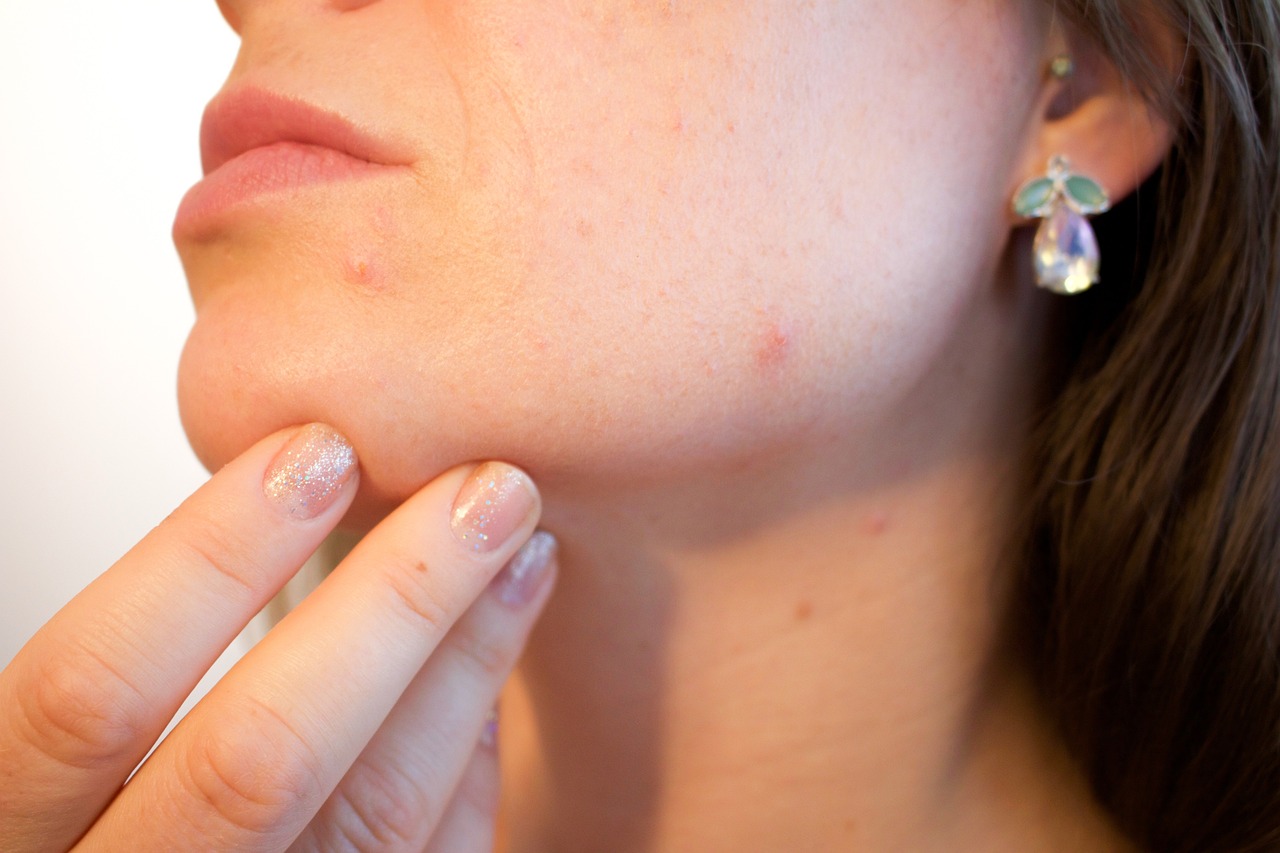The Ultimate Guide to Care For Acne-Prone Skin
What causes acne?
The pores in our skin are crucial for maintaining a healthy complexion. We have two different types: oil pores and sweat pores, connected to those types of glands. We need our pores to release the naturally occurring oil sebum, which keeps our skin moisturised and protected, as well as releasing sweat to cool us down.
Problems arise when these pores get blocked. They might be blocked by dead skin cells, by heavy products, and any other contaminants that come into contact with our skin throughout the day. Essentially, all acne starts with blocked pores. Pimples are caused by bacteria collecting in a pore and prohibiting oil release.
Acne can be anywhere on the body, but typically face acne can be particularly difficult to manage and cover up. There are plenty of theories about what causes acne from greasy foods to chocolate, but the science points more towards the following;
- Hormones: often puberty or pregnancy can cause flare-ups, or at certain times of the menstrual cycle.
- Medications: corticosteroids have been known to cause problems, as has the contraceptive pill.
- Nutrition: diets high in processed sugar and carbs could be linked.
- Genetics: as is often the case with skin, if you have family with acne-prone skin, you may be more susceptible.
- Products: using the wrong products for your skin type or harsh chemicals may be perpetuating the problem.
It is quite easy to tell if you have acne as the symptoms are very visible. Acne can present itself as whiteheads, blackheads, inflamed skin, pimples, cysts and nodules.
As unpleasant as it may be, there are plenty of ways you can try to treat your acne at home.
Taking care of acne-prone skin: the basics
If you have acne-prone skin, you may find our top tips for managing oily skin helpful, as we discuss how to manage sebum production and reduce the chance of clogged pores.
Aside from this, here are some basic tips when it comes to caring for your acne-prone skin:
- Use mild soap and cleanse regularly: once or twice a day is sufficient, don’t use anything too strong, you just want to clear the surface of your skin of oil and dirt, rather than getting in too deep.
- Look for “non-comedogenic” products: this specifically refers to ingredients that do not clog your pores. All of our skin oils are non-comedogenic.
- Don’t touch! Resist the temptation to squeeze or touch your acne - this spreads bacteria and oil across the surface of the skin and will likely make the problem worse.
- Aim for water-based makeup: if you wear make-up, avoid oil-based products and go for something lighter - remember to look for non-comedogenic products here too.
These are the key things to start doing if you aren’t already. Let’s have a look at some more specific actions you can take on top of this.

Taking care of acne-prone skin: the specifics
Delving a little deeper, here are some tips more unique to acne-prone skin:
- Keep shampoo off your skin: if you are prone to get acne on your back as well as face, this might be caused by your hair products. If you leave in conditioner, try to keep it off your back, and make sure you wash shampoo out completely. Also ensure you wash your hair quite often to clear the dirt and oil.
- Keep any skincare or makeup applicators clean: if you experience acne, then bacteria is getting clogged in your pores. Ensure anything coming into contact with your skin is therefore as bacteria-free as possible (East Cape mānuka oil is great for banishing acne-causing bacteria).
- Cleanse after working out: as with the above, pores can get clogged by bacteria and potentially sweat, so don’t let sweat linger on your skin for too long.
- Microdermabrasion: this is a treatment which helps to remove the dead skin cells that may be clogging your pores, usually delivered in sessions by skincare specialists.
- Medications: in the event that your other attempts are not working, there are plenty of over-the-counter medications you can try. In this case, it is best to discuss with your doctor which would work best for you.
The best natural oil for acne-prone skin

The Mānuka Essentials Skin Oil for Acne-Prone Skin is specially formulated to help you manage your acne-prone skin using the best that nature has to offer.
Our blend of oils works to regulate sebum production, keep a healthy level of moisture in the skin without clogging it, destroy harmful bacteria and fungi and heal inflammation caused by acne. It contains:
- Jojoba Oil: working very similarly to our natural sebum, jojoba is easily absorbed by the skin and works to replenish without clogging.
- Hemp Seed Oil: like jojoba, hemp seed oil also absorbs easily into the skin and is a great healer, working to ease any inflammation.
- Argan Oil: antioxidant and anti-inflammatory, argan oil is a great revitaliser for acne-prone skin.
- Evening Primrose Oil: with high levels of gamma linolenic acid, this oil is great for dry and inflamed patches of skin.
- Açaí Berry Oil: full of minerals and vitamins to help renew, feed and restore struggling skin.
- East Cape Mānuka Oil: too many benefits to list here, our favourite is antimicrobial, antibacterial and antioxidant, covering all the essential bases for acne-prone skin.
- Tea Tree Oil: a regular in problem skin products, tea tree is often used for healing wounds and easing inflammation.
- Rosemary Oil: stimulates growth and regeneration of damaged cells.
- Roman Chamomile Oil: gentle, healing and soothing for troubled skin.
Check out the rest of the Mānuka Essentials skin oil range here and our top tips for the other skin types here.
